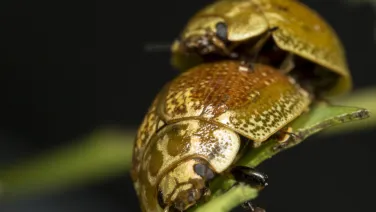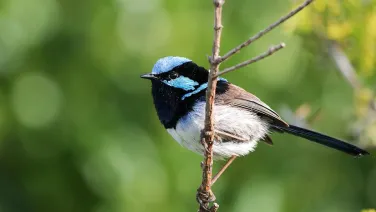News & events
News & events
Find out about our latest news and events.

Lead researcher Dr Megan Head says her study shows sexually transmitted diseases can act as a mediator for sexual conflict, which occurs when the evolutionary interests of males and females don't align.

We may be in the middle of an insect mass extinction. The once abundant Rocky Mountain locust was last seen in 1902. Under the Mikheyev Group, Peiyu Yuan used data from a related extant locust species and comparative genomics to identify artifacts in museum data of the Rocky Mountain locust.

Researchers from the Australian National University (ANU) have discovered several new species of butterflies and moths in Northern Australia, identifying a conservation stronghold of national and international significance.

Fairy wrens can learn to recognise the alarm calls of other species.

Seaweed plays an important role in coral reef biodiversity, with an important role in the lifecycle of several fishes.

Alexandra Catling indulges in her passion for scientific research on a trip to south east Asian forests. And discovers leeches.
Carp gudgeons in eastern Australia have evolved a complex and quirky system of hemiclonal unisexual reproduction.
An individual’s environment can substantially impact its health, fitness, and the traits it invests energy to. This is something that I am particularly interested in and has been a focus of my research career to date.
The majority of the world’s plants rely on animal pollination at least to some degree for reproduction.
The long-tailed finch, Poephila acuticauda provides a long-established example of sub-species divergence across the Top-End of Australia based on bill colour, with red-billed birds in the east and yellow-billed birds in the west.

The climate is warming fast, threatening species persistence and biodiversity. Being sessile, plants must respond and adapt to changing environmental conditions in situ.
Bat echolocation is considered one of the most complex and diverse modes of sensory perception in animals, but its origin and evolutionary history is a highly contentious issue that remains unresolved.